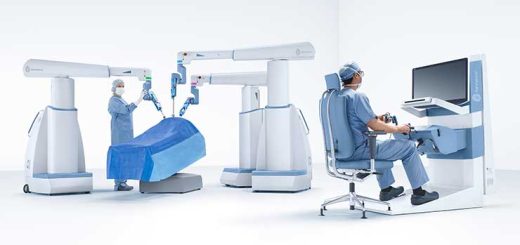Artificial intelligence in pharmacy, and will pharmacists be replaced by robots?
Artificial intelligence is used in healthcare, It can use algorithms & software to approximate human cognition in the analysis of complex medical data, The use of AI will enable a greater level of personalized, high-touch care for patients, While already a hallmark of specialty pharmacy, AI can be used in analyzing data & presenting results that would support decision making, saving human effort, time, and money, and thus helps save lives.
Artificial intelligence (AI)
Artificial Intelligence is defined as computer systems able to perform tasks that normally require human intelligence, It comprises three distinct types: human-created algorithms, machine-learning, and deep learning, The world is rapidly moving towards the adoption & seamless integration of artificial intelligence (AI), including machine learning (ML) as a subset of AI.
Artificial intelligence in pharmacy
Pharmacy uses artificial intelligence to contribute to the overall healthcare industry, Artificial Intelligence presents guidance on drug interactions, drug therapy monitoring, and drug formulary selection, There are many aspects of pharmacy that AI can have an impact on, In pharmacy, AI is called pharmacy management system, housing patient utilization & drug data, It can identify drug-related problems through clinical decision support screening.
Artificial intelligence can influence & shift our focus from the dispensing of medications toward providing a broader range of patient-care services, We can leverage AI to help people get the most from their medicines and keep them healthier, AI provides pharmacy with an opportunity for more collaboration across many different entities serving the same patient.
Pharmacy can address the growing demand for prescriptions, even when faced with pharmacist shortages, demands of the Affordable Care Act, growing operating costs, and lower reimbursements, pharmacy use Artificial intelligence to improve workflow efficiency and lower operating costs while promoting safety, accuracy, and efficiency in every pharmacy setting.
Automated dispensing provides pharmacists with more time to engage with a greater volume of patients while also enhancing their health outcomes, While these successes have helped pharmacy play a key role in patient care, it is still frequently perceived as a transaction-based business dispensing a lot of prescriptions and not having enough time to care for patients.
Pharmacies can become health management centers instead of only medication fulfillment locations, AI can present more personalized healthcare offerings including advice, guidance, and an expanded suite of services (e.g., immunizations, screenings, MTM, disease state management), Health trackers and wearables will offer real-time capture of data that can enable pharmacy to follow up with at-risk patients on their conditions and monitor their quality of improvement.
Patient health records are private, requiring patients to give specific permission, and pharmacists are still not routinely and consistently included among the treating healthcare professionals who have access to them, Healthcare data is distributive among many systems and requires professionals to seek out the information and try to paste the pieces together to provide quality patient care.
AI includes the overall evolution of computers, resulting in faster data collection & more powerful data processing, Growth in the availability of health-related data from personal and healthcare-related devices & records, Development of pharmacogenomics & gene databases, Expansion & industry adoption of electronic health records, Natural language processing & other advancements in computing that have enabled machines to replicate human certain processes.
In the early process of drug discovery, machine learning has many potential uses, from the initial screening of drug compounds to the prediction of the success rate of a drug, AI may play a role in drug target identification and validation, target-based, phenotypic, and multitarget drug discoveries, drug repurposing, and biomarker identification.
AI implementation for drug trials could reduce the time it takes a drug to get approval and reach the market, consequently reducing the overall cost, AI may serve multiple other purposes in pharma & healthcare such as conducting repetitive tasks such as data entry & lab test analyses, thereby clearing up time to focus on more urgent or complex tasks and to interact with patients, Data management, including of medical records, Analysis of healthcare systems to identify errors or inefficiencies.
AI will allow specialty pharmacies to offer care in a more precise manner to individual patients, with a focus on prevention and personalization that has not yet been seen, AI will process and analyze large amounts of data in a hyper-efficient manner, Improvements in budgeting, lower operational costs, and improved overall organizational efficiency will be seen as a positive result of AI data analysis, although not directly related to pharmacy.
The increase in efficiency gained elsewhere throughout the organization will be the catalyst that enables pharmacists (and other clinicians) to devote more time providing personalized, detailed, high-touch care to their patients, Developing approaches to personalized drug combinations that treat many disease states, working towards increased understanding of disease processes, enabling a better & more effective treatment options.
Robotic Pharmacy (Automated dispensing machines pharmacy) cons, pros and uses
The importance and uses of computer technology in pharmacy
Artificial intelligence in medical field advantages & how AI medical diagnosis changes medicine
Applications of Artificial intelligence in the medical field & healthcare



